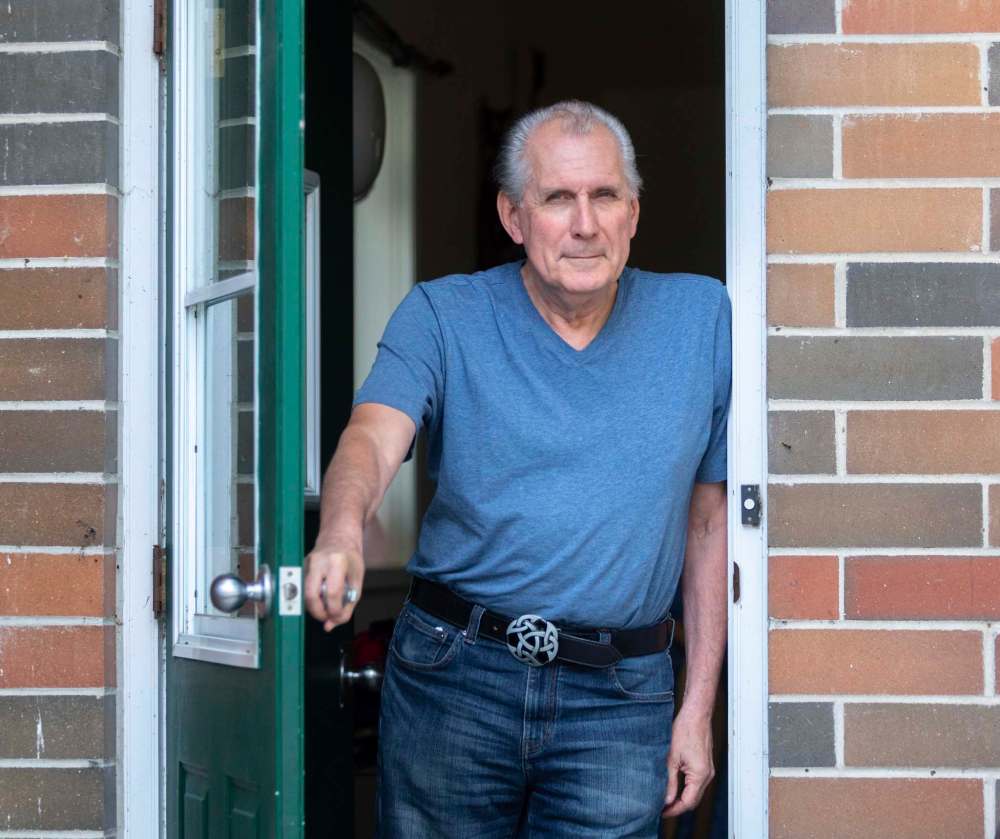Disability advocacy organization in limbo amid funding uncertainty
Advertisement
Read this article for free:
or
Already have an account? Log in here »
To continue reading, please subscribe:
Monthly Digital Subscription
$0 for the first 4 weeks*
- Enjoy unlimited reading on winnipegfreepress.com
- Read the E-Edition, our digital replica newspaper
- Access News Break, our award-winning app
- Play interactive puzzles
*No charge for 4 weeks then price increases to the regular rate of $19.95 plus GST every four weeks. Offer available to new and qualified returning subscribers only. Cancel any time.
Monthly Digital Subscription
$4.99/week*
- Enjoy unlimited reading on winnipegfreepress.com
- Read the E-Edition, our digital replica newspaper
- Access News Break, our award-winning app
- Play interactive puzzles
*Billed as $19.95 plus GST every four weeks. Cancel any time.
To continue reading, please subscribe:
Add Free Press access to your Brandon Sun subscription for only an additional
$1 for the first 4 weeks*
*Your next subscription payment will increase by $1.00 and you will be charged $16.99 plus GST for four weeks. After four weeks, your payment will increase to $23.99 plus GST every four weeks.
Read unlimited articles for free today:
or
Already have an account? Log in here »
Hey there, time traveller!
This article was published 14/08/2019 (2342 days ago), so information in it may no longer be current.
The Manitoba League of Persons with Disabilities says it may be forced to close after repeated attempts to ask the province to restore its core funding, which was cut in December 2017, have been unsuccessful.
“We’ve done everything we can do, except close the doors, to get by,” said treasurer Fred Dugdale. “You just don’t replace $50,000 overnight.”
The organization has advocated on behalf of Manitobans with disabilities for more than 45 years. It has lobbied governments on issues such as accessible transit and having Braille ballots during elections. It also conducts accessibility assessments and training for organizations.

In order to stay afloat, Dugdale said it has cut staff, downsized its offices and staff members have volunteered their time. It has also created a social enterprise model to charge organizations for accessibility programming.
“The whole point of (our) existence is to create equity,” said Whitney Hodgins, the league’s provincial council secretary.
Both Dugdale and Hodgins said the organization needs base funding in order to pay its employees.
Its members said they have contacted the provincial families minister for the last two years, but has faced repeated problems setting up meetings. The government has encouraged the group to pursue other avenues of funding, said Dugdale, who has a disability as a result of a brain injury he suffered in a motor vehicle accident.
Families Minister Heather Stefanson said in a statement that the league’s revised proposal is under review.
“We recognize the league’s long-standing value to the disability community and history of service,” Stefanson said.
Dugdale has spent a great deal of time looking over the organization’s finances. “We’re pretty much out of money. There’s no way we could keep it going,” he said, adding he remains hopeful about a funding decision after the Sept. 10 election.
Karen Velthuys, executive director of the Learning Disabilities Association of Manitoba, said she was sad to hear the league could close.
“I would hope then that for learning disabilities, that our organization would be able to step into that role a lot more,” Velthuys said.
While Dugdale said there will always be accessibility advocates, he said the league has the ability to mobilize many activists and organizations for broad and individual accessibility issues.
He said its work will become more critical as the population ages.
Statistics Canada data show one in five Canadians has at least one disability. Seniors make up the largest percentage of that population at 38 per cent. The most common disabilities are pain-related, followed by flexibility, mobility and mental health-related disabilities.
maggie.macintosh@freepress.mb.ca
Twitter: @macintoshmaggie

Maggie Macintosh
Education reporter
Maggie Macintosh reports on education for the Free Press. Originally from Hamilton, Ont., she first reported for the Free Press in 2017. Read more about Maggie.
Funding for the Free Press education reporter comes from the Government of Canada through the Local Journalism Initiative.
Every piece of reporting Maggie produces is reviewed by an editing team before it is posted online or published in print — part of the Free Press‘s tradition, since 1872, of producing reliable independent journalism. Read more about Free Press’s history and mandate, and learn how our newsroom operates.
Our newsroom depends on a growing audience of readers to power our journalism. If you are not a paid reader, please consider becoming a subscriber.
Our newsroom depends on its audience of readers to power our journalism. Thank you for your support.

